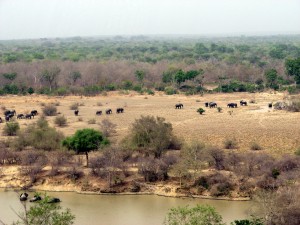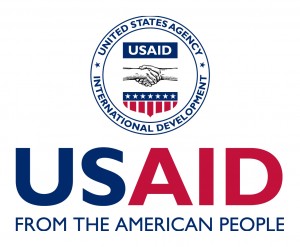Wildlife-based Livelihoods, Agricultural Diversification and Biodiversity Conservation
Research in Ghana focuses on the relationships among rural communities and the wildlife they rely on for food and income. The work explores how human activities affect biodiversity, specifically wildlife communities, and how changes in biodiversity alter livelihood strategies.
Background:
Our current work in Ghana is conducted at the household level and is based on communities in two areas: 1) Mole National Park and surrounding settlements in northern Ghana and 2) Ankasa Conservation Area and associated communities in southwestern Ghana. However, members of our group have worked actively with Ghanaian collaborators at sites across the country since 1999. Past efforts in Ghana have focused on the drivers and ecological consequences of wildlife utilization, with an emphasis on informing wildlife management and conservation.
Program Description:
The BHL program expands our past research in Ghana to take a deeper look at the socio-economic and other factors that create reliance on wildlife and other forms of natural capital. The communities with whom we work in Ghana face challenges common to much of the developing world. A steady decline in the availability of wildlife and forests threatens the livelihoods of the millions of Ghanaians who rely on these resources. This livelihoods challenge occurs at a time of rapid agricultural expansion and increasing reliance on “cash crops” such as palm oil, cocoa, and rubber. These crops may increase monetary wealth but simultaneously reduce local availability of food. BHL in Ghana endeavors to illuminate how a rapidly changing environment and dramatic shifts in agricultural practices interact additively and synergistically to affect local livelihoods. Key questions from this research relate not only to the process of change in these rural communities, but also on how these changes ultimately affect the resistance and resilience of households to environmental, health, economic or other shocks.
Program Activities:
- Ecological Monitoring: In collaboration with the Wildlife Division of the Ghana Forestry Commission, wildlife and wildlife habitats are monitored in our study areas using several approaches, including camera trap and transect surveys.
- Household Surveys: Efforts led by Ghanaian collaborators have resulted in surveys of more than 1200 households. More than half of these are part of ongoing efforts to collect longitudinal household data to examine wildlife harvest and consumption, hunter behavior, agricultural activities and production, other livelihood activities, income, wealth and food security.
Partners:
- Ghana Forestry Commission, Wildlife Division
- A Rocha Ghana
- Conservation Alliance Ghana
- University of Ghana, Legon
- Kwame Nkrumah
- University of Science and Technology (KNUST)
- University of California, Berkeley
- US Agency for International Development (USAID)
- National Science Foundation (NSF)


